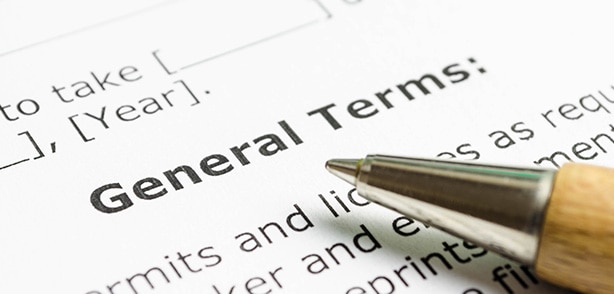SBA loans are meant to be last resort options for entrepreneurs who can’t get approved for traditional funding sources. For example, if a business owner applies for a bank loan and their application gets declined, they could be a candidate for an SBA loan. Often, business owners get declined if they don't have enough collateral, a high credit score, or they don’t meet the other requirements.
If your business is having cash flow issues and has exhausted other traditional funding products, SBA loans might be a viable option. To start the process, read this post to learn about the SBA’s loan requirements for existing businesses and startups pursuing business funding!
Are You Aware of the Different SBA Loan Requirements?
The Types of SBA Loans:
The U.S. Small Business Administration provides several avenues for accessing funding through or adjacent to them. The three
main categories are
7(a),
CDC/504, and
Microloans.
The SBA 7(a)-loan option is for general business use, covering needs such as real estate for startups and existing businesses. In addition to backing part of the loan, the SBA also caps the interest rate that lenders can charge at a set amount above the
prime rate.
The 504 Local Development Company Program works in conjunction with Certified Development Companies to help small businesses acquire long-term, fixed-rate funding. This type of business loan can be used for real estate, machinery, and equipment that will be used to generate commerce.
As the name suggests, Microloans are provided in smaller amounts than usually received through a standard term loan. This financing is meant to cover short-term working capital needs, but not debts or property purchases.
With Microloans, money is lent on a long-term, low-cost basis to qualified SBA Microloan lenders. Then, these lenders extend loans in smaller amounts with shorter repayment terms to business owners looking to cover working capital expenses.
Within the broad loan programs are more niche categories. For example, the SBA 7(a) Express Loans program offers faster time to funding for small loan amounts. However, this comes at the cost of higher interest rates and less government funding than the standard kind.

How to Qualify for SBA Loan Options:
The criteria for eligibility is similar to standard loans. Lenders will want to see a good business and personal credit score, financial statements, a down payment, and ideally some kind of collateral. You must also be a registered
qualifying small business operating in the United States.
The exact requirements will depend on the lending institution and the type of loan that you’re applying for. This is subject to change at any time, particularly depending on the lender you're working with. However, there are a few broad requirements that dictate eligibility.
1. Prove That Your Business Can’t Qualify for Other Financing Options
The SBA loan programs aren’t meant to take the place of traditional lending institutions or standard practices. To qualify for financial assistance, entrepreneurs must prove that they have tried everything else to get funding. To do this, they may be asked to provide rejected loan applications. In addition, applicants may be required to submit personal assets to secure their loan.
2. Show That You Have Experience
Start-ups have a harder time qualifying for SBA loans for the same reasons that they may not qualify for a standard term loan — for example, not having enough business financial history. Also, you may be disqualified for past delinquency on personal or business debt, or a low individual credit score.
However, being able to show that you have a track record of earning sales and repaying your credit card debt or loan balances can help. Submit a thorough business plan and any other financial documents that exhibit your business’s strengths. Note that the amount and type of loan you apply for may also make a difference. For example, fledgling businesses should consider microloans, which are
friendlier to newbies.
3. Select the Right Loan Program
Occasionally, the U.S. SBA may pilot programs to serve specific policy agendas. For example, the SBA offers a
Community Advantage loan program in targeted markets by extending loans with lower eligibility requirements.
Other programs focus on helping companies in specific industries, such as energy, conservation, manufacturing, or import-export. Depending on the type of business you own, you may benefit from one of these industry-specific programs.
4. Policy Matters
Besides your business's industry, you’re far more likely to qualify for an SBA loan if other aspects of your business align with public policy goals. For example, if you are a women or minority-owned organization, you might qualify for loans that are meant for these groups.
In addition, you may be more likely to approved for a 504 if your geographical location coincides with district revitalization efforts in
Enterprise Zones.
Another factor that depends largely on circumstances is the
SBA’s Disaster Loan program. If your business is in a declared disaster zone after a hurricane, fire, or other natural disaster, you might qualify for this financing.
Conclusion: Understand the SBA’s Prerequisites & Application Process
There are numerous factors that go into applying and qualifying for an SBA loan. Requirements range from business history to the applicant’s personal CV and depend largely on political climate. However, understanding the requirements for SBA-backed loans can help small business owners who are struggling to get funding through traditional means.
Has your business applied for an
SBA loan option in the past? Tell us about your experience in the comment section below.
Editor’s Note: This post was updated for accuracy and comprehensiveness in March 2021.

